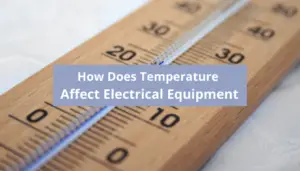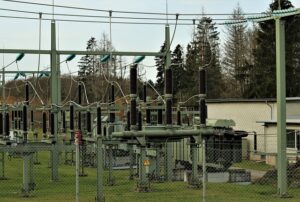As an electrical engineer working with motors and transformers maintenance, I’m sharing with you this article to understand the importance of ensuring that these components remain functional and reliable throughout their lifespan.
Electrical transformers and motors are critical to many industrial and commercial processes, and their failure can lead to costly downtime and repairs.
In this article, we will discuss the key factors that influence the lifespan and durability of electrical transformers and motors, and explore ways to maximize their performance.
Factors That Influence Lifespan and Durability
- Design Quality: The quality of the design and materials used in the construction of electrical transformers and motors play a crucial role in their durability. When selecting a transformer or motor, it’s important to choose a reputable manufacturer that uses high-quality materials and has a proven track record of reliability.
- Operating Conditions: The conditions under which the transformer or motor operates can significantly impact its lifespan. Environmental factors, such as temperature, humidity, and dust levels, should be carefully monitored and controlled to prevent premature wear and damage. Electrical transformers and motors should also be protected against power surges and voltage spikes that can cause insulation breakdown and other issues.
- Maintenance: Regular maintenance is essential to keep electrical transformers and motors running smoothly and extend their lifespan. Maintenance should include regular inspections, testing, and cleaning to prevent dust and debris buildup. Repairs and replacements should be performed promptly to prevent further damage and to maintain the integrity of the system. For more information about Transform maintenance, read my detailed article here.
- Load Factors: The load factor is another critical factor that can impact the lifespan and durability of electrical transformers and motors. The load factor refers to the amount of current that the transformer or motor is designed to handle. Overloading the system can cause overheating and premature failure, while underloading can lead to insulation breakdown and other issues.
Maximizing Performance
- Proper Installation: Proper installation is crucial to the performance and longevity of electrical transformers and motors.
It’s important to ensure that the system is installed correctly and that all connections are secure and properly grounded.
A qualified electrician or technician should perform the installation to ensure that it is done correctly.
- Regular Inspections: Regular inspections are essential to identify potential issues before they become major problems.
Inspections should include visual inspections, testing, and cleaning to prevent dust and debris buildup.
Inspections should be performed at least once a year, and more frequently in high-use environments.
- Regular Maintenance: Regular maintenance is essential to keep electrical transformers and motors running smoothly and prevent premature wear and damage.
Maintenance should include regular inspections, testing, and cleaning to prevent dust and debris buildup.
Repairs and replacements should be performed promptly to prevent further damage and maintain the integrity of the system. I have written a detailed article about electrical maintenance work read it here.
- Load Management: Proper load management is essential to ensure the longevity and performance of electrical transformers and motors.
The load factor should be carefully monitored, and the system should be designed to handle the expected load.
Overloading the system can cause overheating and premature failure, while underloading can lead to insulation breakdown and other issues.
Conclusion
In short, electrical transformers and motors are incredibly important components in many industrial and commercial applications. It’s crucial to take good care of these components to ensure that they remain reliable and durable over time.
By paying attention to design quality, operating conditions, maintenance, and load factors, you can help maximize the performance and lifespan of your electrical transformers and motors.
Remember, regular inspections, proper installation, and load management are all key to ensuring that these components remain in good working order.
As an electrical engineer working with motors and transformers maintenance, you have the knowledge and expertise to keep these critical components running smoothly and effectively.



